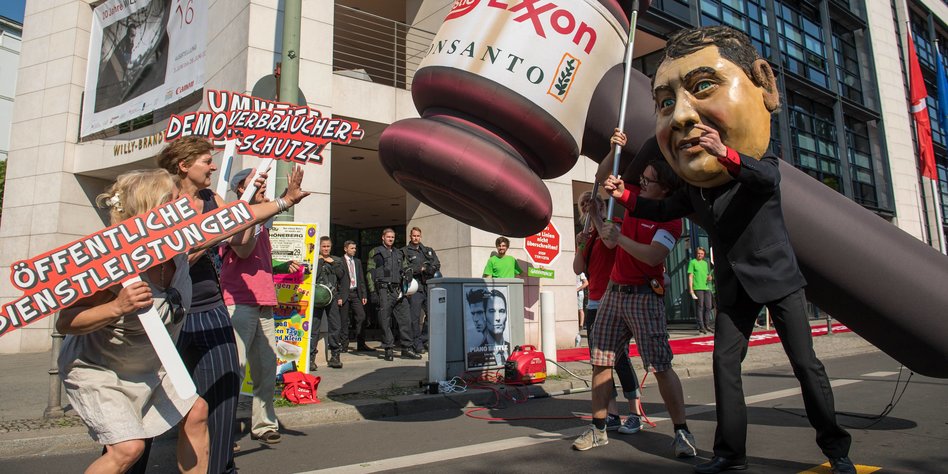German leaders told to put brakes on CETA as well
EurActiv | 1 September 2016
German leaders told to put brakes on CETA as well
By Nicole Sagener
Dismantling democracy, millions spent in lawsuits and jobs in peril. A study into the effects of the planned CETA and TTIP agreements on the German region of North Rhine-Westphalia has revealed a grim picture. Bleaker still is the conclusion that the results can be applied to all of Germany.
The status of the EU’s free trade agreements with Canada and the United States (CETA and TTIP, respectively) is currently in doubt. France has called on the European Commission to put a stop to the TTIP negotiations over the coming month and German Vice-Chancellor Sigmar Gabriel has also put a nail in the transatlantic agreement’s coffin.
On Wednesday (31 August), the “No to CETA” initiative handed in a constitutional complaint to the Federal Constitutional Court in Karlsruhe.
A new study into the possible effects of the agreements is set to fuel the sceptics’ fires. Although the analysis, carried out by trade expert Thomas Fritz on behalf of the Die Linke European Parliament group, focused on just North Rhine-Westphalia, the nationwide picture is all too clear from the results.
Realistically, a number of regulations could fall victim to TTIP and CETA, including those applicable to public procurement, hospital planning, staff guidelines, the housing market and transport, as well as affecting a ban on fracking. The study also warns that both agreements would reinforce social inequality.
Corinna Groß, managing director of German trade union ver.di, warned that in its current form CETA poses a genuine threat to working conditions in the Federal Republic. The agreement would allow international corporations with weaker working conditions and poor wages unfettered access to the German market and this increased competition would set off a chain reaction or a race to the bottom.
The study concluded that large companies like ExxonMobil, Uber, Bayer, RWE and E.ON would all benefit from the FTAs.
“The promise of growth and prosperity is on shaky ground. While transnational companies hope to benefit, local authorities, workers and environment and consumer protection groups stand to gain nothing,” Fritz warned.
Fabio De Masi, Die Linke’s MEP for the region, called upon NRW’s Minister-President, Hannelore Kraft, as well as Sigmar Gabriel, to take aim at CETA as well as TTIP and put the brakes on future negotiations.
“The provisional application of CETA without the involvement of national parliaments is unacceptable,” De Masi said.






